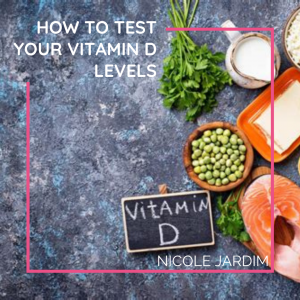Vitamin D is a miracle vitamin that so many people are deficient in! But there’s more to the story than just supplementing with a bunch of vitamin D and hoping your levels rise.
I’ve dubbed Vitamin D the “period vitamin” because it is involved in many aspects of the menstrual cycle and fertility…
- The Yale University School of Medicine did a study with 67 women suffering from infertility. Only 7 % of the study participants had normal vitamin D levels! The rest had either insufficient levels or an actual clinical deficiency. In fact, almost 40% of the participants had clinical vitamin D deficiencies.
- A recent study on women with PCOS found that Vitamin D deficiency seems to be linked to the condition. After vitamin D supplementation, absent and/or irregular menstrual cycles began to normalize and dysfunctional uterine bleeding stopped in the majority of participants.
- A study by scientists at the University of Massachusetts found that a diet rich in calcium and vitamin D can help control some emotional symptoms of PMS, such as anxiety, irritability and tearfulness. This is because it helps boost estrogen and progesterone levels in women.
It is clearly connected to our reproductive health and there are distinct conditions that seem to be related to its deficiency. PCOS, infertility and premenstrual syndrome are epidemic in the modern world. A coincidence? Probably not. And guys, you are affected too…
In men, vitamin D is essential for the healthy development of sperm and it helps maintain semen quality and sperm count. Vitamin D also increases testosterone levels, which boosts libido.
Vitamin D is not really a fat-soluble vitamin but rather a pre-hormone. The reason for this is because vitamin D acts more like a hormone in the body, because it is manufactured when we are exposed to sunlight.
Symptoms Of Vitamin D deficiency:
- Getting sick often
- Unexplained fatigue and tiredness
- Chronic joint, bone and back pain
- Bone loss
- Depressed feelings and low mood for no apparent reason
- Impaired wound healing
- Hair loss
- Muscle pain
- Imbalanced blood sugar
- Exacerbation of PCOS symptoms like blood sugar dysregulation or insulin resistance
- Irregular cycles, anovulatory cycles, dysfunctional uterine bleeding
If you have any of the symptoms above you should definitely get your vitamin D levels checked.
How To Test Your Vitamin D Levels
You can ask your doctor for a vitamin D test. Or you can test at home. Lets Get Checked is my go-to provider for at-home testing kits for myself and clients. You just order them online, have the kit shipped to you, then do the tests at home and send the kit back in the mail.
One and done.
And after processing, their team of physicians will review your results and a member of their nursing team will call you to deliver the results and discuss treatment options.
I recommend this Vitamin D test from them:
(Use code Hormones20 to get 20% off the price of the test)
At home Vitamin D test identifying Vitamin D deficiencies with online results in 5 days.
Biomarkers covered:
- Vitamin D
Where To Get More Vitamin D:
- The best way to get vitamin D is through sun exposure. You should expose your face, hands and arms to the sun, three or more times a week, for 10-20 minutes, depending on your skin, the season, and the distance from the Equator. The best time of day for this is between 10am-2pm. Most importantly, this exposure to the sun should be without sunscreen, as sunscreen interferes with the production of Vitamin D. If you have fair skin or burn easily, do it earlier or later in the day.
- Studies have found a link between Vitamin D deficiency, blood sugar dysregulation and insulin resistance. In one study, a direct correlation between low Vitamin D and diabetes was found when it was discovered that for every unit increase in vitamin D levels, there was an 8% decrease in the risk of getting diabetes. So it’s important to maintain balanced blood sugar to support your vitamin D.
- Systemic inflammation is associated with lower vitamin D, and deficiencies in vitamin K2, magnesium and boron are also associated with chronically low vitamin D. So if you have been consistently supplementing with vitamin D and it’s still low or symptoms continue to persist, it’s time to start looking at other causes.
- In addition, you can supplement. Start with cod liver oil, magnesium and K2. For Vitamin D, most health experts recommend getting between 2000IU and 5000IU a day depending on the severity of the deficiency. Some other practitioners recommend a much higher dose a day in order to actually move your levels to where they need to be. There is a chance of vitamin D toxicity, so it’s important that you do not supplement if you have adequate vitamin D levels.
- My recommendation is to work with a skilled practitioner who can also retest you three months after you begin supplementing. You may also want to follow the Vitamin D Council’s recommendation: If you are deficient, then they recommend 1000IU per 25lbs of body weight daily. If you weigh 125lbs, you’ll take 5000IU a day.
- Make sure if you buy supplements that they contain vitamin D3 and not D2 which actually does not raise blood levels of vitamin D. In addition, vitamin K2 is needed to prevent vitamin D toxicity, so your supplement should contain K2 or you should eat foods rich in K2 like beef liver, high fat dairy and egg yolks.
- If you choose to supplement, I recommend Seeking Health Vitamin D3 a+ K2 Liquid and Seeking Health Vitamin D3 + K2 Capsules.




1 thought on “How To Test Your Vitamin D Levels”
I bought four vitamin D test kits and I’ve just received three packages. Am I one short or is there another coming?